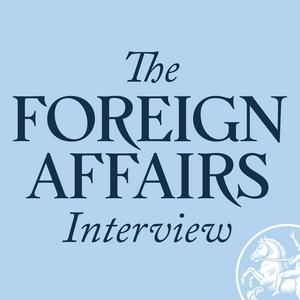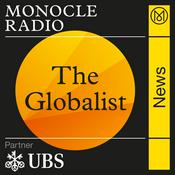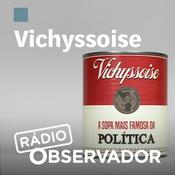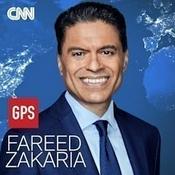132 episódios
- February 24 marks the fourth anniversary of Russia’s full-scale invasion of Ukraine. After Moscow’s initial onslaught, Ukrainian counteroffensives, and slow Russian gains since, the war has settled into a brutal pattern of attrition, adaptation, and endurance. Ukrainian cities are rationing electricity, as the Ukrainian military struggles to muster the manpower and munitions needed to gain a decisive edge. Meanwhile, the battlefield has become a hellscape of drones and artillery fire—with no clear breakthrough for either side in sight.
Michael Kofman has been one of the sharpest observers and analysts of the changing nature of the war, from Russia’s troop buildup in late 2021 to the present, in the pages of Foreign Affairs and elsewhere. He has also considered the geopolitical implications of each new phase of fighting—what the continued threat of a belligerent Russia means for the West, and how Ukraine’s allies can prepare it for sustained conflict. Now, as the war enters its fifth year, Kofman, a senior fellow at the Carnegie Endowment for International Peace, argues that “Russia retains battlefield advantages, but they have not proved decisive, and more and more, time is working against Moscow.” “Yet ending the conflict on terms acceptable to Ukraine,” he writes, “will not be an easy feat, either.”
In this special bonus episode, Dan Kurtz-Phelan spoke with Kofman on Wednesday, February 18 about where the war stands four years in, and how it might change in the weeks and months ahead.
You can find sources, transcripts, and more episodes of The Foreign Affairs Interview at https://www.foreignaffairs.com/podcasts/foreign-affairs-interview. - A year into Donald Trump’s second term, the United States’ allies on both sides of the Atlantic seem to have recognized that they need a new strategy for this age of rupture, as Canadian Prime Minister Mark Carney called it. Trump’s grab for Greenland, his tit-for-tat tariffs on Canada, his approach in Ukraine—all have opened up rifts between the United States and many of its closest partners.
Chrystia Freeland has for years been on the frontlines of the battle for the future of the alliance as Canada’s foreign minister, deputy prime minister, and finance minister—roles in which she went head-to-head with the Trump administration on a host of fraught issues. She recently left the Canadian government to serve as a volunteer adviser to Ukrainian President Volodymyr Zelensky.
As much as Freeland sees the cracks in the relationship, she still stresses the imperative of making the alliance work despite them. Freeland and Dan Kurtz-Phelan spoke on the sidelines of the Munich Security Conference on February 15 about how to negotiate with Trump, what Ukraine can offer Europe and the United States, and why American allies must rethink their approach to this moment.
You can find sources, transcripts, and more episodes of The Foreign Affairs Interview at https://www.foreignaffairs.com/podcasts/foreign-affairs-interview. - In 2024, there were more than 300 million migrants across the world—double the number there were in 1990. Many of those had been displaced by conflict or climate change; many were simply looking for jobs and a better life. But the national and multilateral systems designed to manage these flows have proved grossly inadequate, helping set off political convulsions not just in the United States and Europe but in countries around the world, including in Africa, Latin America, and South Asia. In democracies, migration has perhaps become today’s most fraught and divisive political issue.
To Amy Pope, the director general of the International Organization for Migration, these “unprecedented levels” of migration and the crackdowns that have come in reaction make abundantly clear that the current global immigration system is failing. It is, she wrote in Foreign Affairs last year, “incapable of contending with today’s humanitarian needs, demographic trends, or labor-market demands.”
Pope argues that a challenge of this scale demands a complete system overhaul—a rebuilding of global migration policy that prioritizes order and dignity. Without such a restructuring, Pope warns, the risks of “more social unrest, more inequality,” and, ultimately, “more abuse and exploitation” of the world’s most vulnerable people will only grow.
You can find sources, transcripts, and more episodes of The Foreign Affairs Interview at https://www.foreignaffairs.com/podcasts/foreign-affairs-interview. - Canadian Prime Minister Mark Carney may have made headlines when he described a “rupture” in global order in a speech at Davos last month. But long before that, policymakers and analysts had already been grappling with this unsettled—and unsettling—era in global politics. And the challenge has of course been especially great for American allies facing a very different Washington.
President Alexander Stubb of Finland has become central both to navigating and to understanding this time of rupture. He has emerged as a leader who is particularly adept at managing the rift in the U.S.-European relationship, and at talking to Donald Trump, whether about Greenland or about golf. Yet even as he’s scrambled seemingly every week to avert a transatlantic crisis, Stubb has also gone out of his way to stress the long-term stakes of this moment—as he did in a recent Foreign Affairs essay. He warns that without significant changes, “the multilateral system as it exists will crumble,” and that “the alternatives are much worse: spheres of influence, chaos, and disorder.”
Dan Kurtz-Phelan spoke to Stubb on Tuesday, February 3 about geopolitical challenges from China and Russia to Ukraine and, of course, Greenland; about Trump and the future of alliances; and about what a true breakdown in global order would mean in the years ahead.
You can find sources, transcripts, and more episodes of The Foreign Affairs Interview at https://www.foreignaffairs.com/podcasts/foreign-affairs-interview. - One of the big surprises of Donald Trump’s second term has been the change in his approach to China. His first term marked the start of what seemed to be a hard-line consensus in Washington. But in the past year, the drivers of Trump’s policy have been much harder to decipher—including for Chinese policymakers. Beijing was prepared to respond forcefully to tough U.S. measures, as it has, most prominently, by wielding its control over rare-earth metals. Yet it has also seen new opportunities to gain ground in its bid for global leadership, as Trump’s focus careens from Latin America to the Middle East to Greenland.
Jonathan Czin has spent his career decoding the power struggles and ideological debates inside the halls of power in Beijing. Now at the Brookings Institution, Czin long served as a top China analyst at the CIA before becoming director for China at the National Security Council. He sees Beijing’s year of aggressive diplomacy as a success, but with a lot of uncertainty about the months ahead. Xi Jinping faces a series of summits with Trump even as he grapples with economic challenges at home and a military that, if recent purges are any indication, is still not to his liking. Dan Kurtz-Phelan spoke with Czin about China’s approach to Trump 2.0; what to make of the military purges and other developments in Beijing; and the enduring nature of U.S.-Chinese rivalry, whatever the surprises in the short term.
You can find sources, transcripts, and more episodes of The Foreign Affairs Interview at https://www.foreignaffairs.com/podcasts/foreign-affairs-interview.
Mais podcasts de Notícias
Podcasts em tendência em Notícias
Sobre The Foreign Affairs Interview
Foreign Affairs invites you to join its editor, Daniel Kurtz-Phelan, as he talks to influential thinkers and policymakers about the forces shaping the world. Whether the topic is the war in Ukraine, the United States’ competition with China, or the future of globalization, Foreign Affairs’ weekly podcast offers the kind of authoritative commentary and analysis that you can find in the magazine and on the website.
Sítio Web de podcastOuve The Foreign Affairs Interview, Programa Cujo Nome Estamos Legalmente Impedidos de Dizer e muitos outros podcasts de todo o mundo com a aplicação radio.pt

Obtenha a aplicação gratuita radio.pt
- Guardar rádios e podcasts favoritos
- Transmissão via Wi-Fi ou Bluetooth
- Carplay & Android Audo compatìvel
- E ainda mais funções
Obtenha a aplicação gratuita radio.pt
- Guardar rádios e podcasts favoritos
- Transmissão via Wi-Fi ou Bluetooth
- Carplay & Android Audo compatìvel
- E ainda mais funções


The Foreign Affairs Interview
Leia o código,
descarregue a aplicação,
ouça.
descarregue a aplicação,
ouça.




































